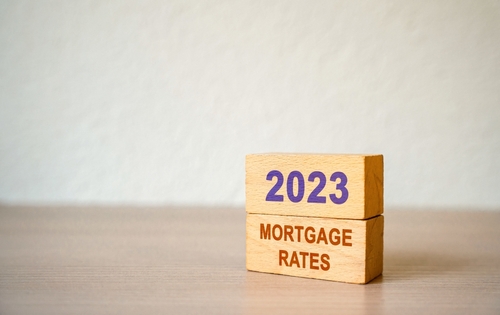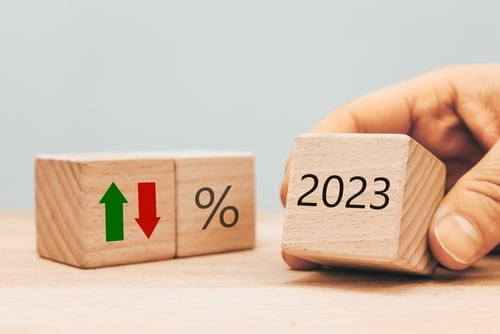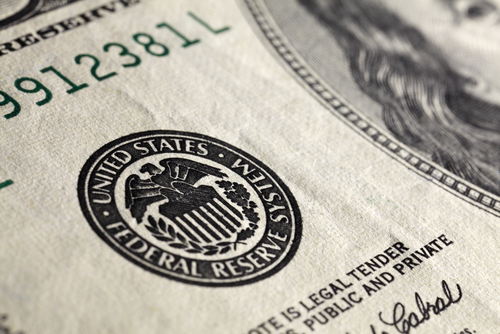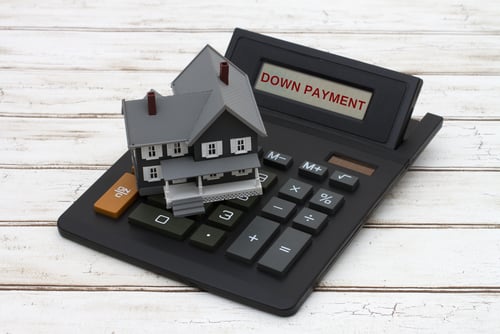Over the past year, mortgage rates have skyrocketed, negatively affecting the affordability and demand of real estate. However, as the market starts to correct, investors are curious about where mortgage rates are headed in the new year. Read along as we review some mortgage rate predictions for 2023 and how to get the best rate for your property.

Contents of This Article:
- Mortgage Rate Predictions for 2023: Will Rates Go Down?
- Common Factors That Affect Mortgage Rates
- Mortgage Rate Predictions for 2023: Is Now a Good Time to Invest?
- How to Get the Best Mortgage Rates for Your Properties
- Protect Your Rentals With Comprehensive Management
Mortgage Rate Predictions for 2023: Will Rates Go Down?
Mortgage rates in 2022 seemed to climb with no end in sight, resulting in rates nearly double what they were a year ago. Unfortunately, this significantly impacted several industries, including real estate investing and property management in Washington, DC. While some investors believe the increases are over, others suspect they’ll continue to increase in 2023.

As of now, in January 2023, the average mortgage rate for a 30-year fixed mortgage is 6.63%. While it fluctuates often, rates are down compared to when they peaked in November at 7.30%. However, there’s still room for improvement, as rates last year were as low as 3.30% for a 30-year fixed mortgage.
Mortgage loan rates fluctuated over the past year due to high inflation and the Federal Reserve’s attempt to get it under control. As we head into the new year, many experts believe that Federal Reserve monetary policies will continue to put pressure on rates.
Several factors affect mortgage rates, including inflation, economic factors, personal factors, and more. So, let’s go over some of the main contributors to high mortgage rates.
Common Factors That Affect Mortgage Rates
Most people assume that inflation is the main factor that affects mortgage rates. However, while they generally go hand-in-hand, several components can influence mortgage rates. Here are a few of the main factors to pay attention to.

- Inflation
- Economic Factors
- Property Type
- Federal Reserve Monetary Policy
- Personal Factors
Inflation
One of the main factors that directly impact mortgage rates is inflation. When inflation goes up, interest rates go up, too, keeping up with the dollar’s value. Inflation causes mortgage rates to increase so much because the cost of borrowing becomes more expensive. On the other hand, when inflation decreases, mortgage rates fluctuate accordingly.
Economic Issues
The state of the economy is another factor that can impact mortgage rates. During a recession, rates will fall and rise again as the economy recovers. Over the past few years, the Covid-19 pandemic hugely impacted inflation and mortgage rates. That said, as we’ve slowly recovered from this economic crisis, investors can expect rates to slow down and correct themselves a bit.
Property Type
The type of property you’re looking for and how you plan to occupy it also affects your mortgage interest rate. Banks and lenders will look at your investment and your plans for the property. For instance, buying real estate for your primary residence may make you more likely to prioritize payments. On the other hand, an investment property or vacation home may hold less importance, resulting in a higher rate.

Federal Reserve Monetary Policy
One of the most critical factors that affect mortgage rates is the monetary policy used by the Federal Reserve Bank. The Federal Reserve’s Monetary Policy has several economic impacts, including interest rates. While the Federal Reserve doesn’t directly set interest rates, adjusting the money supply plays a major role.
Personal Factors
Finally, before getting a mortgage loan, lenders look at your personal finances and other factors. For instance, they’ll look at your credit score, how much you want to borrow, your repayment term, and your loan-to-value ratio. As such, all of these things play a role in your mortgage rate.
Mortgage Rate Predictions for 2023: Is Now a Good Time to Invest?
The past year hasn’t been favorable for real estate investors. Home prices, inflation, and high-interest rates caused a lot of investors to take a step back. However, 2023 could be a good year to start buying real estate again.
While it’s hard to predict what will happen with mortgage rates in 2023, real estate is generally a safe investment. After all, real estate generally outperforms other assets regarding appreciation. However, if you’re looking to support your rental business, securing a property that will give you monthly cash flow is important.
As rates continue to drop from what they were in 2022, it’s hard to say when the right time to buy is. However, experts predict there will be more opportunities to invest in real estate throughout 2023.
How to Get the Best Mortgage Rates for Your Properties
You’ll want to ensure you get the best rate when looking for a new mortgage. Now, there are a few ways to do this. Generally, mortgage rates are based on your credit score, debt-to-income ratio, and more. Here are a few ways to set yourself up to get the best mortgage rate possible.
- Improve Your Credit Score
- Shop Around and Compare Rates
- Save for a Down Payment
Improve Your Credit Score

Getting your credit score up is one of the first steps to getting a lower mortgage interest rate. While a lower credit score doesn’t mean you won’t get a loan, it could mean higher borrowing terms. As such, you’ll want to shoot for a credit score of around 620 or higher.
Some ways to improve your credit score include:
- Making payments on time
- Keeping utilization low
- Leaving old credit lines open
- Avoiding opening new credit accounts
Shop Around and Compare Rates
Another way to ensure you get the best rate possible is by comparing rates from different lenders. If you accept the first rate that you’re quoted, you could miss out on opportunities for lower rates.
Aside from talking with your personal bank or credit union, you’ll want to meet with multiple lenders. After all, some lenders have different fees, closing costs, and insurance premiums.
Save for a Down Payment
Putting more money down on your loan could help you get a lower mortgage rate. For instance, you can avoid paying private mortgage insurance if you have enough money to put 20% down.
Usually, private mortgage insurance is equal to 0.58 percent to 1.86 percent of the original loan amount. If you cannot pay 20% down on your loan, you’ll end up paying private mortgage insurance. As such, you’ll want to save up to make the largest down payment you can.
Protect Your Rentals With Comprehensive Management
Several factors may affect mortgage rates in 2023. Since mortgage rates constantly fluctuate, it’s important to research to ensure you get the best rate for your properties. Once you find a suitable rental with a reasonable mortgage rate, you’ll want to find someone to manage and maintain the property.
A full-service management team can help with all the day-to-day tasks of owning a rental. For instance, property managers can market rentals, screen tenants, collect rent, and perform maintenance. So if you’re looking for a top-notch management team, look no further than Bay Property Management Group.
Bay Property Management Group offers comprehensive rental property management services for landlords in Baltimore, Philadelphia, Northern Virginia, and Washington, DC. Contact BMG today to learn more about our management services.

